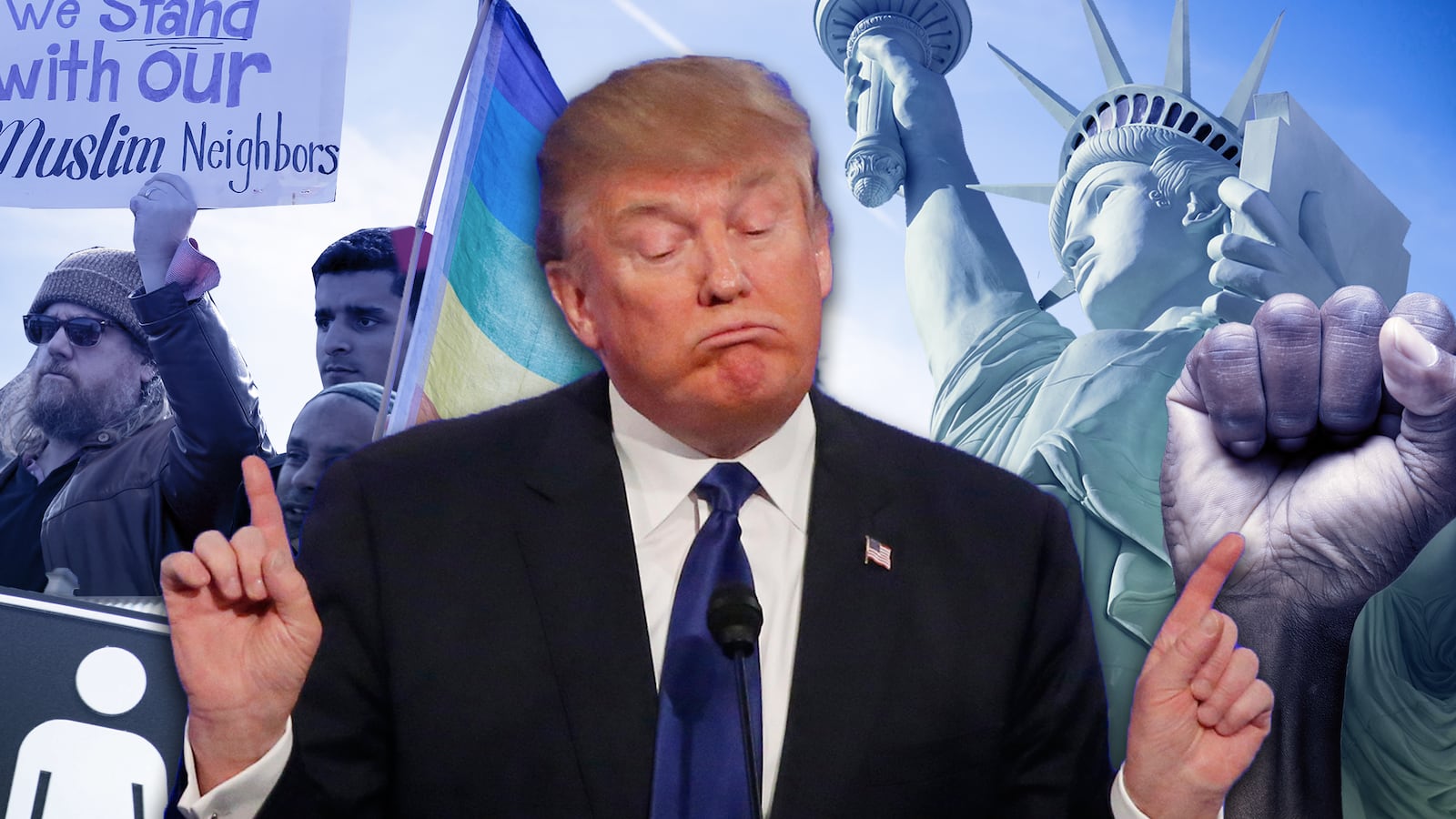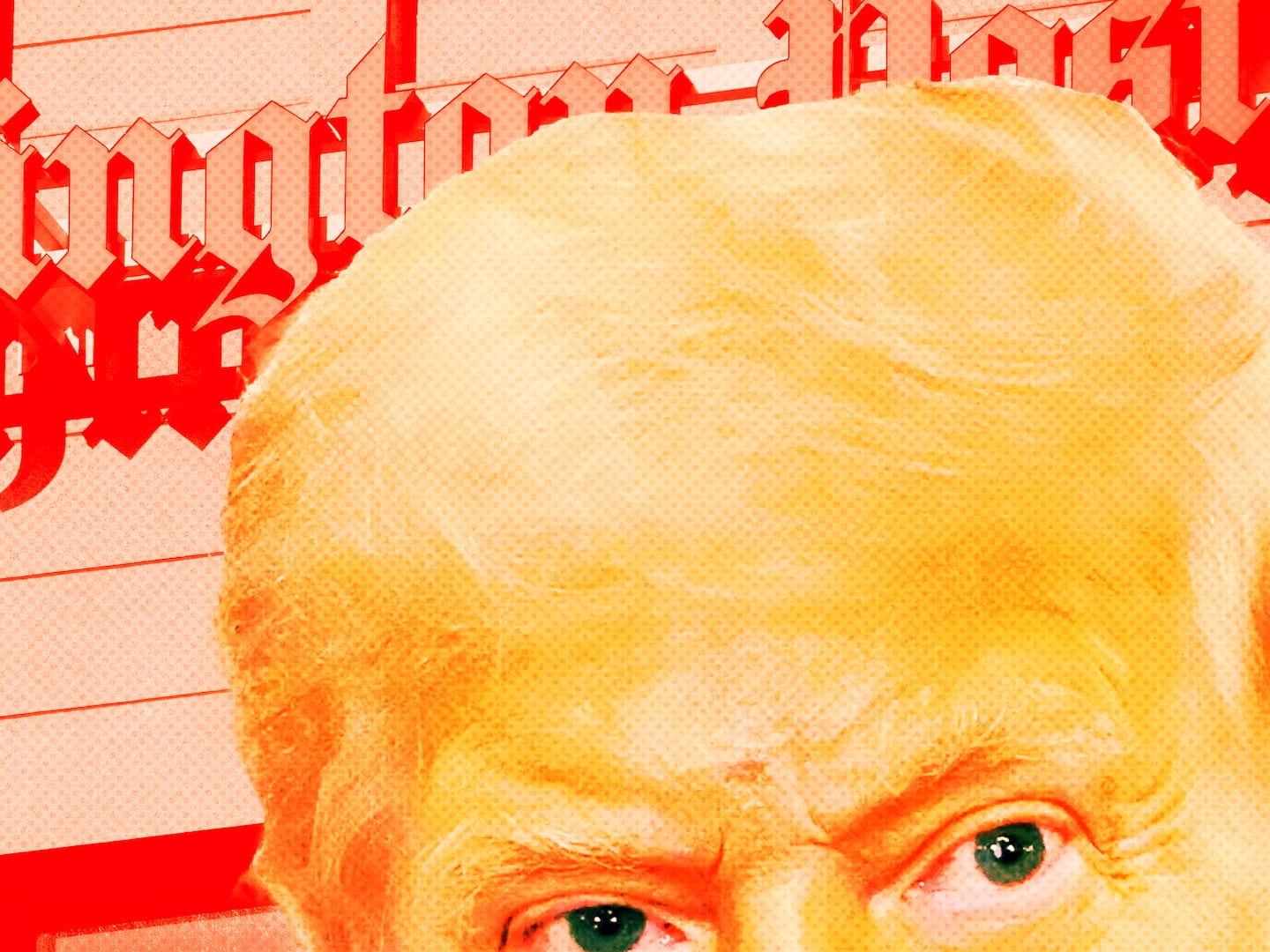CLEVELAND—It’s Donald Trump’s party, but Ted Cruz is still calling the shots.
That became clear Tuesday, as the Republican Platform Committee worked through its guiding policy document and couldn’t seem to steer away from the debate over the LGBT community, introducing amendment after amendment opposing gay rights and same-sex marriage.
“I’m not aware of any Trump campaign position on that,” said Kris Kobach, the Kansas secretary of state who said he was informally advising the presumptive nominee’s team on platform committee issues and is in occasional contact with the candidate himself.
Anne Dickerson, a pro-LGBT delegate from New York, exclaimed: “We have a bathroom or restroom obsession in this platform.”
The platform committee spent time on the definition of junk food and whether to oppose discrimination on the basis of “gender” as opposed to on the basis of “sex.”
Another debate centered around whether “pre-born” or “unborn” was the most appropriate way to describe a fetus that had yet to come to term—and swirled into absurdity when a delegate pointed out that “unborn” was shorter for Twitter and messaging purposes.
Protecting “the right to life of our country’s babies” was Maine delegate Stacey Guerin’s most important priority going into the platform committee, a stark contrast with Trump’s position on abortion, which went through a notorious set of flip-flops in a matter of hours earlier on in the campaign.
Cruz, however, would have fit right in with the culture warriors seated behind the blue-draped tables.
Throughout his presidential run, Cruz leaned on contentious social issues to bolster his conservative credentials. He heaped praise on Indiana Gov. Mike Pence for signing the Religious Freedom Restoration Act, which effectively made it legal for a business owner to discriminate against LGBT men and women if their relationship offended the owner’s religious beliefs.
In the waning days of his campaign, the Texas senator dove into the debate over whether transgender individuals should be allowed to use the bathroom of the gender they identify with. Meanwhile, Trump responded to the controversy by saying Caitlyn Jenner could use whatever bathroom she wanted to when she visited Trump Tower.
Not exactly on message.
“There’s definitely a lot that would be part of a natural Cruz platform, although I think there are a lot of things that are part of a Trump platform as well—to the degree he’s expressed those things. Probably less certain on the Trump side,” said Boyd Matheson, a platform committee member from Utah. “I haven’t really seen anything that a Cruz voter would have real angst with.”
As the delegates were discussing which part of government has the authority to declare war, one member even quoted Cruz, who once quipped, “The authority to declare war rests in Congress, not in an out-of-control president.”
The platform committee consists of 112 Republican diehards who represent every state and territory in the United States. Over the course of two days, the panel pushed the Republican Party’s platform hard to the right on abortion, religious freedom, and LGBT issues—all moving more closely in line with Cruz’s views.
It’s a signal of the gap between Trump and the party he now leads: The East Coast businessman has never put much of an emphasis on social conservatism, and perhaps that’s why Trump has taken a hands-off approach to the platform process.
The Trump campaign weighed in only on less controversial minutiae—for example, recognizing overseas American territories. Many GOP committees give equal seats to every territory and state, meaning that the delegations from the U.S. Virgin Islands and American Samoa, for example, wield outsize power, but it’s not something the average American cares about.
“I can think of one thing. There was language concerning the territories and Puerto Rico, and the Trump campaign was very supportive,” Kobach said. “Not big things, like the definition of marriage, but the finer points.”
What resulted is a set of values that might not track with what the Republican nominee has spent so much time emphasizing: trade policy, banning refugees, and building a wall on the border with Mexico. (There was plenty of immigration talk, including a move to change the word “immigrants” to “aliens.”)
But not everyone was on board with the 30,000-word jumble of social issue word games. Some were opposed with such a lengthy document.
Matheson, a former chief of staff to Sen. Mike Lee—Cruz’s best friend—proposed a three-page outline of Republican Party principles that laid out a simple 17-point list of conservative principles. Abraham Lincoln ran on a 1,200-word platform in the 1860s, the delegate pointed out.
“For a platform to have any power at all, it has to be read. If the Republican Party is going to be the party of the working class…they need a platform that can be read around the kitchen table,” Matheson told The Daily Beast. “We’re turning our principles into the tax code…Like all things in politics, it grows over time, but when it grows, it creates a distance between the authors and the only audience that matters—and that’s the American people.”
That proposal was roundly rejected as the meeting wrapped up.
--Alexa Corse and Andrew Desiderio contributed to this article.







